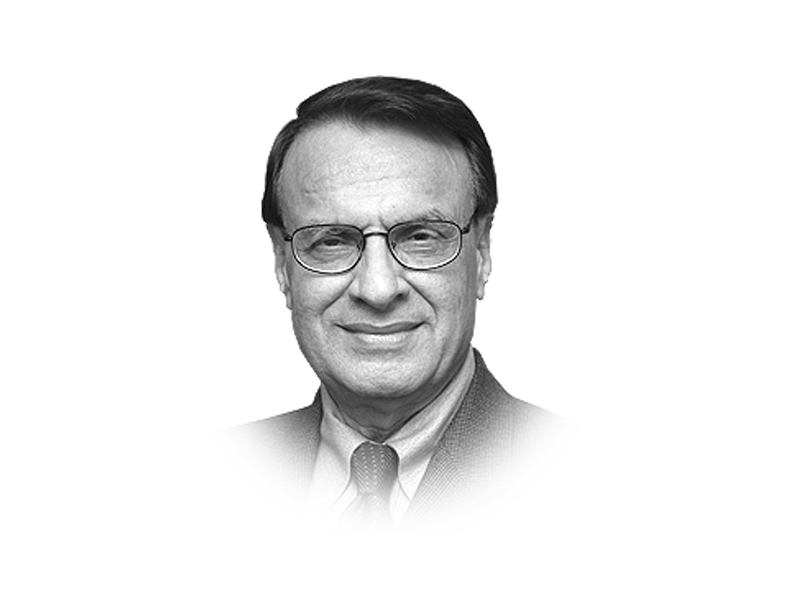
Thanks to the old imperial connections at the civil-military level, we immediately got sucked into the Cold War struggle. In the process, we encountered unbroken series of crises and challenges that perhaps, no other country in the world has ever experienced. We still have not been able to come out of our ‘dilemma’ and are facing one crisis after another. Even today, we are living in a hostile environment. No wonder, the outgoing year was no different from the earlier years of our life in terms of challenges to our foreign policy.
For any country, it is important who its neighbours are, as their attitude, irrespective of their size or power, has a direct bearing on its personality and character, and on issues of its security, development and resource allocation. We could not change our geography nor choose our neighbours. We had to live with geopolitical realities no matter how challenging they were. In doing so, our sole consideration had to be how to safeguard and preserve our independence and territorial integrity. Geography thus placed on Pakistan the onerous responsibility of consistent vigilance and careful conduct of its relations not only with its immediate neighbours but also with the rest of the world.
Pakistan’s strategic location was pivotal to the global dynamics of the Cold War era and remained crucial to the post-9/11 murky scenario. The events of 9/11 represented a critical threshold in Pakistan’s foreign policy. In the blinking of an eye, we became a pivotal player in another US-led long war in our region. The Afghan crisis both during and post-Soviet era has had a direct impact on Pakistan’s socio-cultural, political, economic and strategic interests. The post-9/11 Pakistan came to be known as the ‘breeding ground’ of religion-based extremism and terrorism. It was treated both as a partner and a target while playing its critical role in the global ‘war on terror’.
This sordid reality has seriously hurt Pakistan, domestically as well as externally, limiting its policy options. Its negative global image has not only made it the focus of world attention and anxiety but also forced it to make difficult choices in its perennial struggle for security and survival as an independent state. Today, we are the only country in the world waging a full-scale war on its own soil and against its own people. We have staked everything in this war and are constantly paying a heavy price in terms of material and human losses. The gruesome Peshawar tragedy was the limit any nation could take.
The foreign policy of a country, and the way it is made and pursued, is inextricably linked to its domestic policies, governance issues and political situation. A country’s standing in the international community always corresponds directly to its political, social, economic and strategic strength. No country has ever succeeded externally if it is weak and crippled domestically. And domestically, the tally of our woes includes loss of half the country, leadership miscarriages, governance failures, politico-economic debacles, societal disarrays and militant perversities. This indeed is the sum total of our post-independence history.
It is against this dreary backdrop that we enter the year 2015. For nearly 67 years, we have followed a foreign policy that we thought was based on globally recognised principles of inter-state relations and which, in our view, responded realistically to the exceptional challenges of our times. But never did we realise that for a perilously located country, domestically as unstable and unpredictable as ours, there could be not many choices in terms of external relations. Our domestic failures have not only seriously constricted our foreign policy options but also exacerbated Pakistan’s external image and standing.
At this painful year-end, it is time we did some soul-searching no matter how agonising it may be to look upon ourselves and see what we have done to our country in our own lifetime. It’s a hazy and tainted picture. We see a mastless country looted and plundered by its own rulers, left with no dignity or pride. We also see a nation debilitating itself spiritually and physically. We are not even ashamed of what we have done to ourselves. We have become a suicidal nation. We have devised ingenuities to kill ourselves. No wonder, the world now calls us the “most dangerous place” on earth.
Foreign policy of a nation is nothing but an external reflection of what you are from within. Terrorism is our sole identity now. We are seen both as the problem and the key to its solution. Whether we accept it or not, in other countries, Pakistan’s name instantly raises fear and concern. We need to change the world’s perception of our country, which surely has many reasons and assets other than terrorism and violence to be recognised as a responsible member of the international community. To do so, we will have to free ourselves of the forces of extremism, obscurantism, intolerance, militancy and violence.
No country has ever succeeded externally if it is weak and crippled domestically. Even a superpower, the former Soviet Union, could not survive as a superpower because domestically it was weak and crippled. Our problems today are also domestic, rooted in governance failures. Even our external difficulties are extensions of our domestic failures. We need domestic consolidation, politically, economically and socially. To be at peace with the world, we need to be at peace with ourselves.
To be treated with respect and dignity by others, Pakistan has to be stable politically and strong economically so that it can be self-reliant and immune to external constraints and exploitation. For us at this critical phase in our history, what is important is not what we are required to do for others; it is what we ought to do in our own national interests. We must convert our pivotal location into an asset rather than a liability.
Published in The Express Tribune, December 26th, 2014.
Like Opinion & Editorial on Facebook, follow @ETOpEd on Twitter to receive all updates on all our daily pieces.
COMMENTS (11)
Comments are moderated and generally will be posted if they are on-topic and not abusive.
For more information, please see our Comments FAQ



1731655243-0/BeFunky-collage-(61)1731655243-0-165x106.webp)








To be at peace with the world, we need to be at peace with ourselves.
You mean the Descendants of the Purest Arab Tribes will have to make peace with lesser beings like the Yahood, the Hanood, the Nasra, the Qadiyanis and the Shias?
No way.
yes of course,it is absolutely true that good foreign policy is the reflection of domestic stability based on national cohesion and integration while opting inside out approach,but one thing which writer has vehemently missed that for the successful deliverance of a state foreign policy at the external level, one has to analyse the diplomatic skills and maneuverings, Pakistan in this domain is relatively failed largely because of less diplomatic skills which ours diplomats use to employ from time to time. Is it not so that security orientations surpass the foreign policy and most of time, it seems more security policy and less foreign policy. security policy is only a component of a state foreign policy. So since Pakistan birth, more confusion has been added and it simply defines foreign relations with more focus on one of the type of security(military security) while setting aside other more security types like political security,economic security and social security. Our foreign mission even career diplomats are more concerned about single type of securitization.
Which way do we go?
What was and is our foriegn policy i never seen one except to say yes sir on every count. imran khan is last chance for us if we want free and independent foriegn policy.
careful conduct of its relations not only with its immediate neighbours : No evidence of that in the past, may be a good suggestion for the future.
"To be at peace with the world, we need to be at peace with ourselves." in my view islam was never at peace with itself, Hence it followers were never at peace (in overall sense). There were always no adjustablity. Self thoughts and creativity is never a part overall islam. (person to person it can vary). Again this is a general article by this knowledgable person from Karnal (haryana) who was part of state dinners, denial press conferences in salwar- achkan. we hear again Turkish people are fed up with Tayyab Erdogan, people want freedoms, expressions, He blames his mistakes on Fethulla. Pakistan wants to become Turkey.
Dear Sir,
Pakistan must free itself from all the clutches of extremism.Moreover it must solve the kashmir problem by setting an example to the world by holding a plebiscite in Pakistan occupied kashmir....So that whole world see's the positive image of pakistan..
Regards Pakistan Zindabad
Lest you are taken in, please read the author's previous articles and record in public service where he supports the very policies that have wrought havoc. He not only justifies them, he blames India, USA and Afghanistan for everything. Now he calls for a reappraisal - let us wait and see what that means. The world does not believe Pakistan.
when this weak and crippled internal system hindering foreign policy to be framed on realities on grounds is challenged by some one it is proclaimed as conspiracy against this very system and democracy, writer like wise start enchanting foreign agenda, anarchy etc, even more adding to is how could Pakistan device a independent foreign policy keeping its right intact on Kashmir and making differential line between good and bad militant and in the presence of porous and volatile pak-Afghan boarder.
This is the first column by Mr. Shamshad Ahmad, which isn't laced with fallacies, conspiracy theories and denials. You have finally grown up.